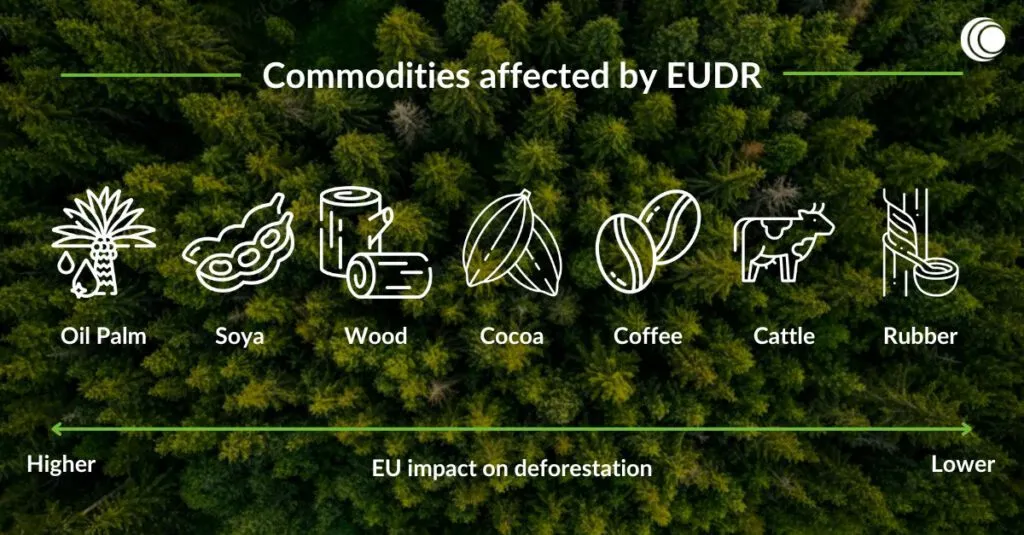EU delays ban on imports linked to deforestation for the second time

The European Union is postponing a ban on imports linked to deforestation for a second time, following pressure from trading partners, including the United States, and member states. Environment Commissioner Jessica Roswall cited technical issues with the registration system, which could collapse under the load when the law takes effect at the end of the year, as the reason for the delay. “There’s a large volume of information from industry in a short period,” she told journalists, adding, “there’s a risk of overload.” This step aims to prevent a system breakdown and provides additional time to address the issues. A delay of one or two years is under discussion, but a final decision has yet to be made.
The law, designed to prevent European consumers from contributing to the climate crisis through purchases of products made from deforested land, bans imports such as soy, palm oil, coffee, cocoa, rubber, and timber unless producers can prove they are not sourced from deforested areas. Several EU member states have complained that companies are not ready to comply with the legislation. Roswall denied that the U.S. or other trading partners influenced the decision, though pressure from Washington and countries like Brazil and Indonesia has been significant.
The legislation was first proposed in 2021 as part of the EU’s ambitious Green Deal, but it was watered down due to farmers’ protests, concerns over the bloc’s slowing economy, and a focus on defense investments following Russia’s full-scale invasion of Ukraine. Last December, the European Commission delayed its implementation by 12 months to the end of this year. The new proposal for an additional year’s delay requires approval from a majority of EU member states and the European Parliament, making the process uncertain.
The United States has sharply criticized the law, as have commodity producers from Brazil and Indonesia, which recently signed trade deals with the EU. Under an agreement reached with the Trump administration this summer, Brussels committed to “work to address the concerns of U.S. producers and exporters” regarding the deforestation law. The EU also acknowledged that “production of the relevant commodities within the territory of the United States poses a negligible risk to global deforestation.” This month, the American Loggers Council stated that the law is “coming apart at the seams” and is a “misguided” attempt to halt global deforestation.
India has also raised the issue during trade talks with the EU. Developing countries argue that the law could exclude millions of smallholders from the EU market due to a lack of resources and technical expertise to comply. The Commission is attempting to ease concerns by publishing an 81-page guide on collecting geolocation data for products and establishing a deforestation observatory based on European satellite imagery, though partners like Australia have contested the data’s accuracy. Poland, one of the most vocal critics of the EU’s green policies, called for a two-year delay this month, arguing that the current model imposes disproportionate burdens on countries with a negligible deforestation risk.
For almost 30 years of expertise in the agri markets, UkrAgroConsult has accumulated an extensive database, which became the basis of the platform AgriSupp.
It is a multi-functional online platform with market intelligence for grains and oilseeds that enables to get access to daily operational information on the Black Sea & Danube markets, analytical reports, historical data.
You are welcome to get a 7-day free demo access!!!
Read also
Abbey Commodities – General Partner of BLACK SEA GRAIN.KYIV-2026
Black Sea & Danube Barley Market at a Turning Point: Demand Pressure and Regi...
US Supreme Court rules Trump’s emergency duties illegal
Mercosur: Protective measures for European agriculture
US makes concessions on pulses in new trade deal with India
Write to us
Our manager will contact you soon



